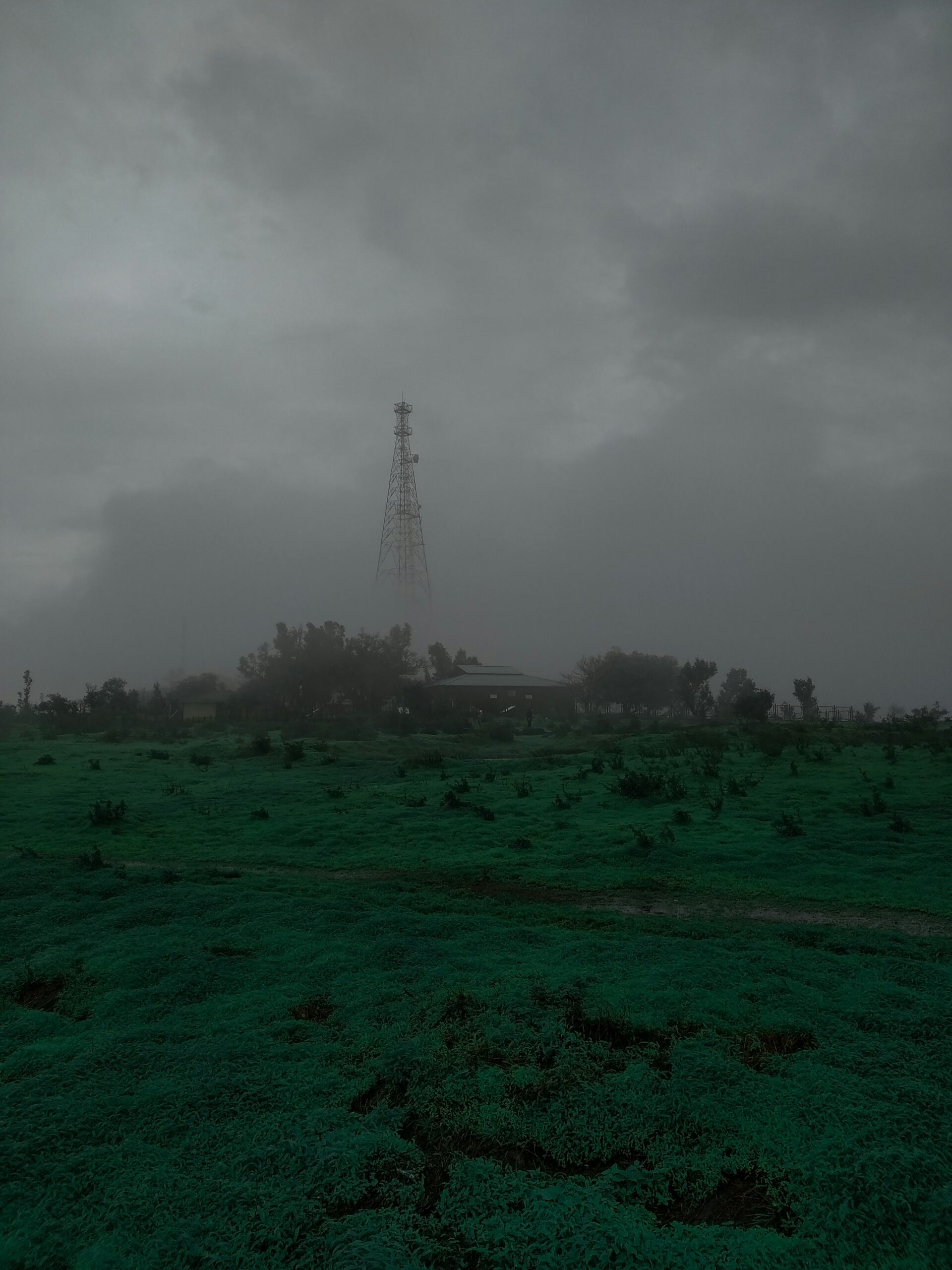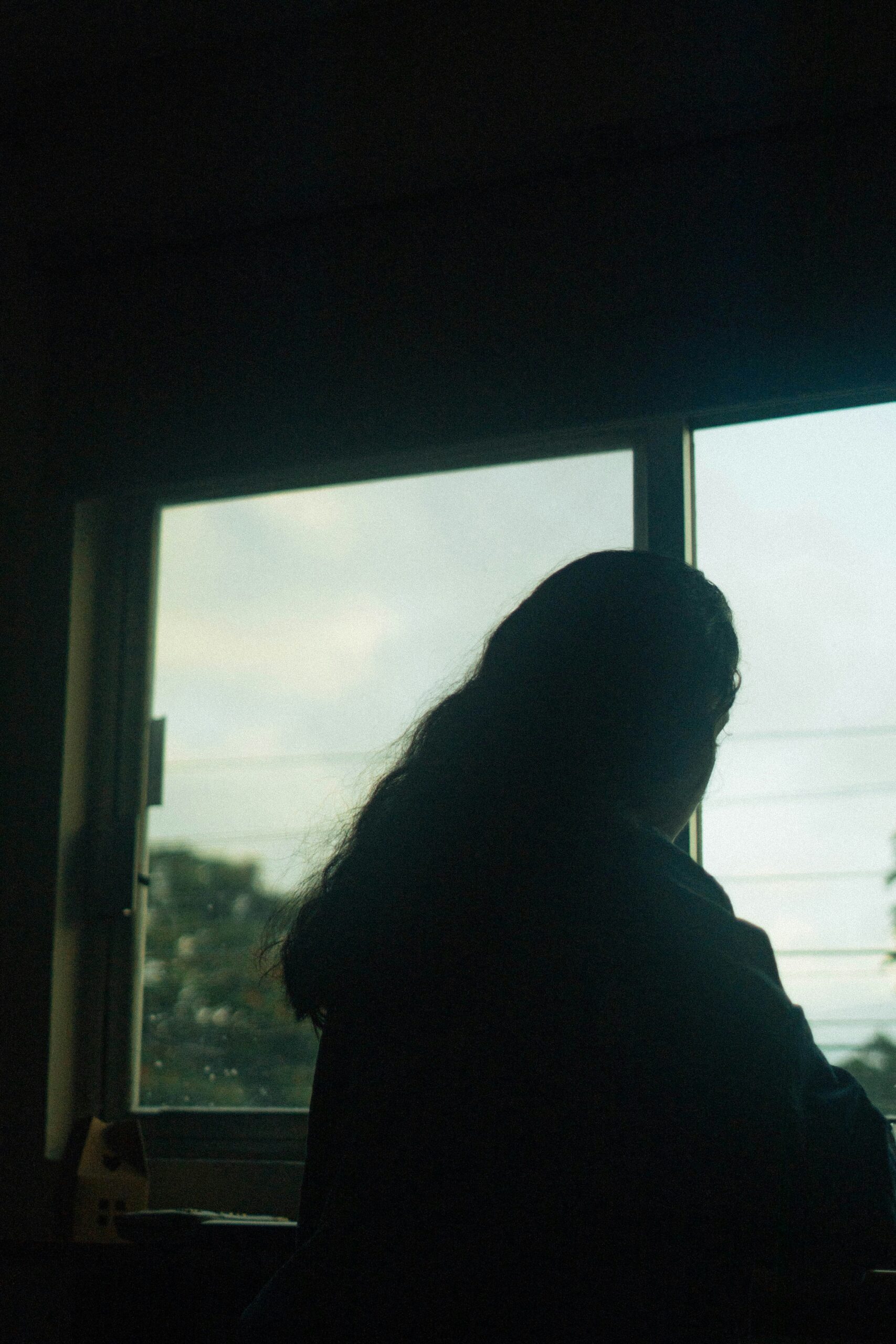| Bashari Chakraborti | July 2025 | Flash Fiction |
As the boat touches the southern bank of the Brahmaputra, my phone erupts with a flurry of beeps. The screen lights up with notifications, seventeen missed calls and a barrage of WhatsApp messages. Ma hears the beeps and looks at me with questioning eyes. “Everything’s fine,” I assure her. We disembark and head to where I had parked my bike before we took the ferry to the Dol Gobindo temple across the river. It is a long walk from the ferry ghat to the road, with the Brahmaputra receding several meters in winter.
I’m itching to check my phone, but I’m apprehensive about what I might find. I’ve been overly protective of Ma since my father eloped with Jili Khuri, our next-door neighbor Khogen Khura’s new bride, when I was just eleven. Khogen Khura hanged himself, Ma says out of shame, but it could be because he couldn’t bear her betrayal. Ma says if not for me, she too would have hanged herself. I have been scared to let her out of my sight ever since.
Khogen Khura’s house has been deserted ever since. No one from his family had ever come to lay claim to the house. Ma had said Khogen Khura was an orphan, and no one knew what his caste was, or even which part of Assam he was from. Our houses are still connected by a long veranda at our backyards, and I would often go there whenever I wanted some quiet away from Ma’s continuously whirring sewing machine.
A glance at the missed calls and messages reveals that half the neighbourhood has tried to reach me. “Tur gate ot eta burha manuh bohi ase,” reads one message. “Sick old man dropped by ambulance at your gate,” reads another. “A cripple was dropped at your gate,” reads yet another. Similar messages continue as I scroll.
Ma notices my furrowed brow and looks at me with concern. “Everything’s fine,” I reassure her. I pull out the bike, and Ma adjusts her mekhela to sit on the bike as I had taught her. Despite being second-hand, the bike is a source of pride for us. It’s our first significant purchase, a testament to Ma’s hard work in raising me to become a successful accountant at Fancy Bazar’s largest electronics showroom. Now that I am earning well, she and her sewing machine can afford to take some rest.
As we navigate the roads and lanes towards our little house, it starts to drizzle. I can’t help but wonder who the old man is. Ma spots him sitting at our gate, just when I take the turn to our lane. Before I can come to a complete stop, she almost jumps off and runs to him. She stares at the old man, and he looks back at her, unblinking.
The stench surrounding him is unbearable; he has likely soiled himself. His lungi is bunched at his knees, revealing his amputated left leg. His upper body is bare, save for a small, tattered gamusa draped over his shoulders. Why did he come? Why now? I step around him to unlock the gate and tap Ma on the shoulder. “Shall I call the police, Ma?” I ask, trembling with the pent-up rage from my eleven-year-old self. She shakes her head, indicating no. I open my mouth to argue, but close it almost immediately. “Whatever you say, Ma,” I remark.
We pull the man into the house. He is still looking at Ma, silent and unblinking. Ma is stoic as she bathes the man, changes his clothes, and feeds him some rice, which he hardly eats. We don’t have spare beds, so I carry him to Khogen Khura’s house. Ma has hastily covered Khogen Khura’s bed with a huge plastic sheet.
The sky seems to have burst, as the rain floods our little courtyard and threatens to enter the door. We decide to call a doctor or transfer the man to a hospital as soon as the rain subsides.
Night falls quickly in winter. The rain continues its relentless descent. I try to sleep, but the man’s grunts from next door penetrate the walls and keep me awake.
I must have drifted off; I am in a daze when Ma’s urgent shaking pulls me out of my stupor. “He is gone. Dead,” she says. “Call Dr. Sharma. We need a death certificate to conduct his last rites.”
I jerk awake and put my feet on the floor to wear my chappals. But my feet land in water. After ages, the rain has entered our door last night. Why did he come? I wonder again. The man whose surname I bear. The man who had left us eons ago for Jili Khuri, our next-door neighbour Khogen Khura’s new bride. The man who now lies dead at Khogen Khura’s house, on Khogen Khura’s bed. Did he want forgiveness or just a refuge?
We will never know, I realize. The winter rain continues to pour, beating down on the roof and sneaking in through the door, washing away the remnants of the past and washing my heart of all the hurt it held.
Glossary:
Khura: Father’s brother, but also used to refer to father’s friend
Khuri- Khura’s wife
Gamusa- Local hand-woven Assamese towel, used to wipe the body and also as a stole
Burha Manuh- Old Man
_________________________

Bashari Chakraborti works a day job of crunching numbers but is fascinated by the world of words. Her writing journey began on her blog, bashariblog. Her debut novel, “My Slice of the Sky,” won the Ukiyoto Woman Writer of the Year 2024 – Fiction award. One of her short stories was awarded the Deodar Prize runner-up spot and published in the Hammock, while another got shortlisted for the BWW RK Anand Prize and published in Out of Print blog. Bashari finds inspiration in everyday life, firm in her belief that even the dullest moments can spark a good story.
_________________________
Feature image by Prajwal Makanwar via Unsplash
Find MeanPepperVine on Instagram @MeanPepperVine



